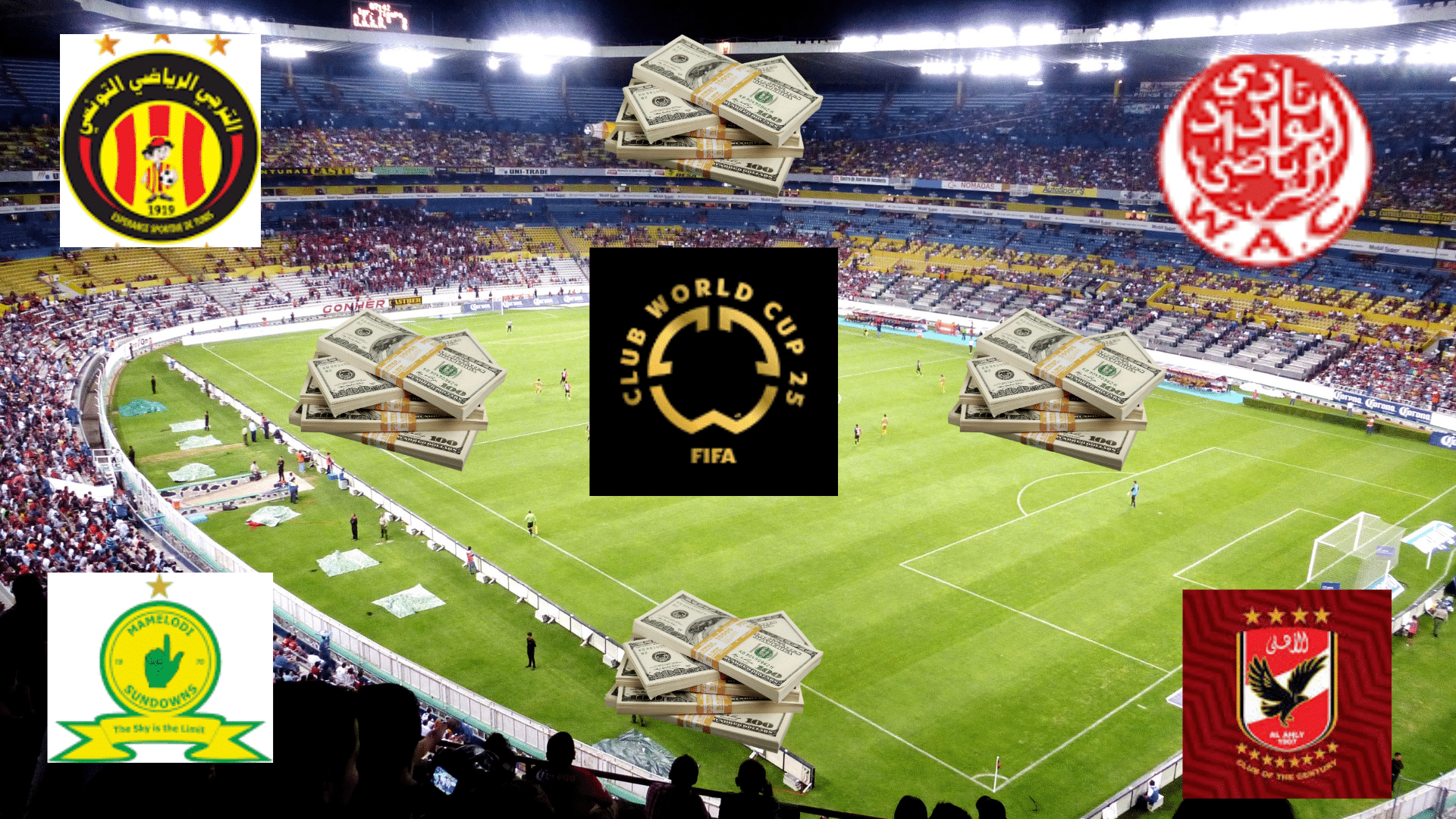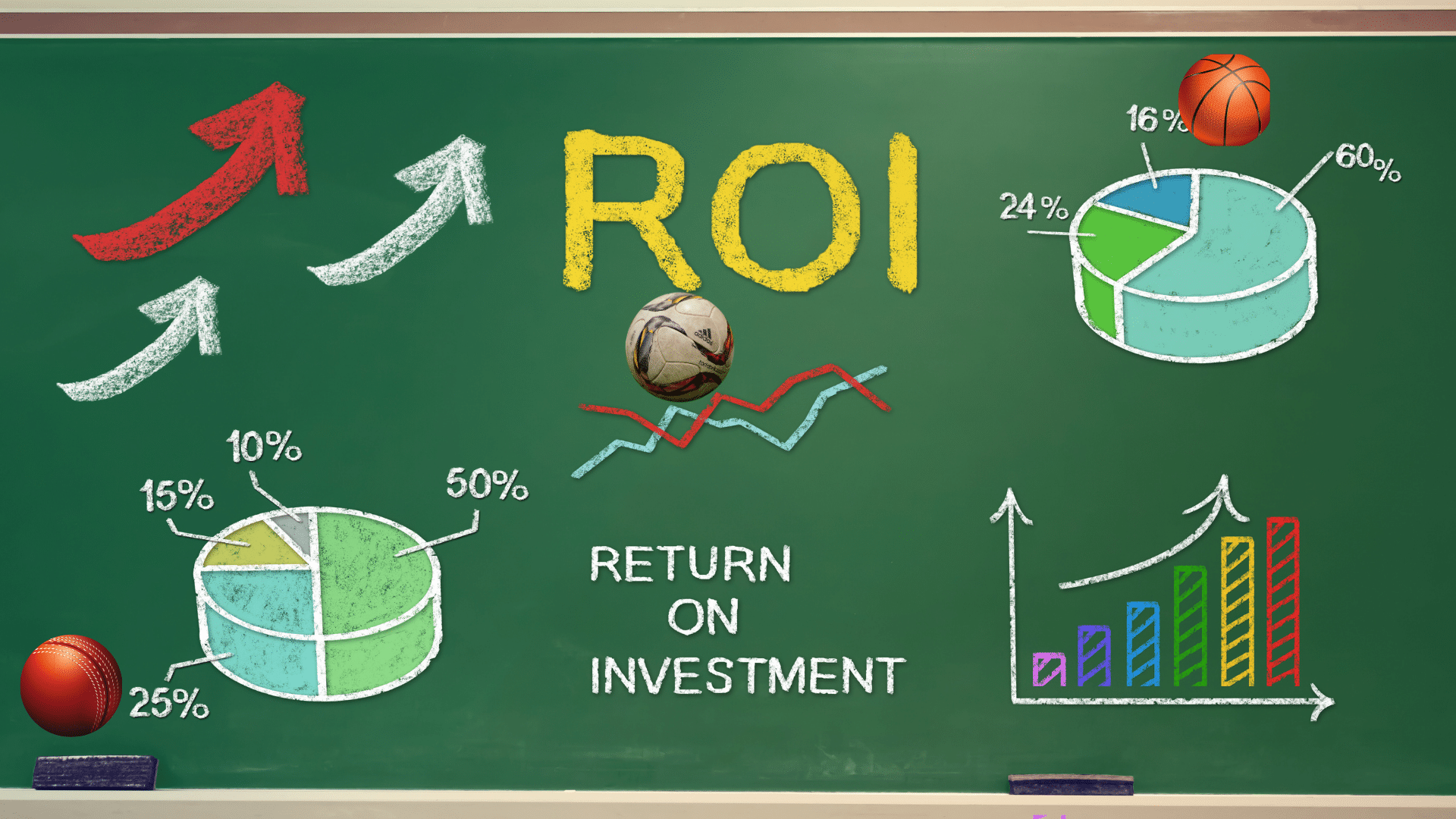The 2025 FIFA Club World Cup was historic in many ways, offering substantial financial rewards and a bold new direction for global club football. The event was held in the United States of America from June 14 to July 13, featuring an expanded format for the first time, with 32 top clubs from all six continental confederations. Worthy representatives from CAF, AFC, CONCACAF, CONMEBOL, OFC, and UEFA gathered in the US to battle for the revered championship crown of FIFA’s flagship club tournament.
With a total of $1 billion up for grabs, the revamped event elevated the stakes for all participants, including four prominent African teams. Al Ahly of Egypt and Morocco’s Wydad AC secured their spots as former CAF Champions League winners, while Tunisia’s Esperance de Tunis and South Africa’s Mamelodi Sundowns qualified through the CAF ranking system. The tournament not only spotlighted African clubs on a global stage but also reinforced the continent’s growing relevance in world football.
Despite early exits from the tournament, each African team received a guaranteed participation fee, as well as performance bonuses. The earnings from the few weeks’ tournament are staggering when compared to the domestic league earnings of the participating African clubs.
So, for the African clubs, their appearance wasn’t only about global publicity; it was also about the revenue boost. Many African clubs derive only modest income from league broadcasts and sponsorships. For instance, the Zambian Super League winner is entitled to approximately $43,600 (K1,000,000) for the entire season, a payout that clubs in the league can only dream of. This underscores a harsh reality that a single Club World Cup appearance can earn an African club more than a full season of domestic football and media earnings.
As we unpack these numbers, the disparity becomes clear: African clubs urgently need sustainable revenue models at home, not just brief cameos on the world stage.
The financial breakdown
African teams get $4 million for winning the CAF Champions League, but just showing up at the 2025 FIFA Club World Cup earned them a guaranteed $9.55 million.
Although none of the four African representatives progressed beyond the group stage, their earnings from the tournament, derived mainly from participation fees calculated based on club coefficients, were a dream come true.
Mamelodi Sundowns of South Africa emerged as Africa’s highest earners, receiving $12.55 million as the top-ranked club on the continent. Egypt’s Al Ahly and Tunisia’s Esperance each took home $11.55 million, as both clubs shared an equal coefficient ranking. Wydad AC, while ranking lowest among the African teams and second-lowest overall out of the 32 clubs, still secured $9.55 million. In summary, African clubs received a total of $45.2 million, representing about 4.64% of the overall prize pool.
As the tournament occurs every four years, there is now added incentive for African clubs to dominate regional competitions such as the CAF Champions League and Confederation Cup to secure a spot in the next edition scheduled for 2029.
On the global scale, Chelsea FC of England led the earnings chart with $114.6 million after lifting the trophy, followed by France’s Paris Saint-Germain at $106.9 million for coming second. Meanwhile, Auckland City FC from New Zealand earned the least, receiving $4.6 million.
In contrast, African clubs’ domestic league earnings remain marginal. This stark disparity illustrates how revenue from the Club World Cup and other international competitions can double or even triple a club’s annual domestic income in a single competition, underscoring the critical role of global tournaments in stabilising club finances across the continent.
Club World Cup earnings Vs Domestic league income
Mamelodi Sundowns’ showing at the 2025 FIFA Club World Cup brought in a substantial $12.55 million, made up of a $9.55 million participation fee, $2 million for defeating Ulsan Hyundai, and $1 million for a draw with Fluminense. In context, their payout after playing three games at the 2025 FIFA Club World Cup is almost equivalent to their annual revenue from the South African Premier League, which is the highest-paying domestic league on the continent. This reveals that Club World Cup earnings alone can rival nearly an entire season’s domestic income, underlining the significant financial boost each major international appearance yields.
Al Ahly SC earned a total of $11.55 from three matches, all of which they lost, at the Club World Cup. They reportedly earned a consolidated revenue of approximately $12.7 million in the 2024/2025 season through their listed holding company, Al Ahly for Development & Investment. Thus, the one-off prize earnings matched nearly the entire revenue drawn from league and commercial activities. For smaller or less commercialised African clubs, where annual budgets often fall well below $5 million, the Club World Cup prizes can represent a transformational cash injection.
Esperance of Tunisia earned $11.55 million after three games at the Club World Cup. They lost their opening game 0-2 to Flamingo on June 17, before rallying the troops to beat Los Angeles Football Club 1-0. They lost their last game to future champions Chelsea 0-3. In contrast, winning the Tunisian League earns the champion a cash prize of $300,000, according to a report. Interestingly, the $300,000 prize money by the Tunisian League is one of the top four highest-paying football leagues in Africa.
Wydad AC earned $9.55 million despite losing all three games at the Club World Cup. They lost their first game against Manchester City by two goals, and conceded four goals against Juventus, but managed to pull one back. Their last match against Al Ain ended 2-1 in favour of their Abu Dhabi opponents. According to reports, Morocco’s top-flight Botolo Pro is the second-highest-earning African league, with winners taking home $603,000. Wydad AC finished in third place in the league season; hence, their earnings for the year would be nothing compared to the war chest they secured at the Club World Cup.
These figures highlight a stark revenue imbalance, where international exposure through global tournaments can eclipse domestic income streams, spotlighting the critical yet inconsistent role such events play in the financial viability of African clubs. Clubs relying on prize money face sustainability challenges, especially when each international berth, though lucrative, is far from guaranteed.
Operational budgets Vs Infrastructure gaps
The African teams that participated in the Club World Cup earned substantial revenue, but may struggle to turn it into a lasting impact at home. History has shown that short-term financial injections rarely translate into long-term economic stability for African clubs.
Many African clubs often allocate their earnings toward immediate obligations, such as pending player salaries and bonuses, external debt service, and operational costs, leaving little or nothing for infrastructure development. To date, there are traces of inconsistent financial governance and a lack of long-term capital planning across African leagues, which undermine sustainable growth. Without policies to protect and reinvest winnings, success will remain short-lived.
While global football revenues soar into tens of billions, African football captures only a fraction of this growth, with estimates revealing that Africa accounts for just 1% of global football revenue, equating to roughly $300–$500 million annually. Time will reveal the impact of the earnings on the African representatives at the just-concluded FIFA Club World Cup.







